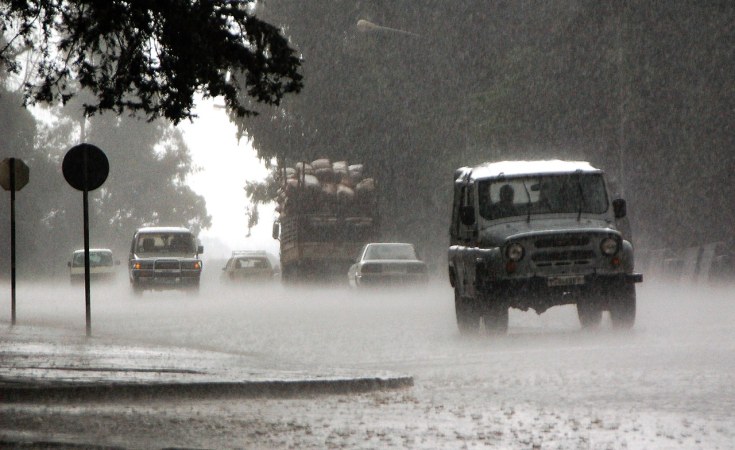Addis Abeba — Around 80 households in Arada Sub City, Woreda 01 here in the capital Addis Abeba in the areas commonly known in Amharic as Eri Bekentu, are bracing for harsh rainy season after "the government has evicted us from our houses, which we have been living in for years without any warning or offering us alternative options," they told Addis Standard.
Mitiku Tesfaye, 38, was born and raised in the Woreda. He is one of several dozens who were evicted from their homes and left homeless. Mitiku told Addis Standard that he had made significant contributions towards security and elections in his locality. "Whereas the government has built recreational centers for the haves, it has neglected us [the poor] and has made us homeless, including our children," he said, complaining of the government's unfair treatment.
According to him, local government officials at the woreda kept promising them that they would be given alternative houses to live in. But it was never fulfilled and officials are frequently being replaced. Explaining the current situation, "we're living in plastic makeshift camps on sidewalks where the security forces always threaten us to leave the place. Children ranging in age from two weeks to high school students are suffering in uncomfortable conditions," he said. He also told our correspondent that the government should treat its citizens equally and lift the children of the poor off the streets instead of giving the land to the rich.
Among the witnesses Addis Standard interviewed was 49-year-old Daniel Haile, who was living in a plastic house with his wife and eight family members. "The woreda and the kebele that used to lobby us to take part in the elections and security matters have now demolished our houses and made us homeless," he lamented. Looking at the flashy "Sheger Park Project " in the vicinity, Daniel despair "you see two kinds of life within a short distance. We are in destitute conditions while the nearby Sheger park project is a multi-million birr project."
Daniel further stated that the then woreda administrator gave him a house in the woreda after his wife gave birth to three children while he and his family were living in a slum. "But now we are on the streets. I have an eighteen-year-old girl who is in grade eleven, I fear the possibility of her being sexually harassed," he said.
Asked where he used to live when the government demolished the area ten years ago and why he wasn't given a house. Daniel says: " Twenty-two years ago, I got married and built a house in my mother's compound in this kebele. When the area was demolished, my mother was given a one-bedroom house at Jemo site in Addis Abeba. I was dependent and the kebele had registered me on the waiting list." Despite his hopes of getting a house, all the illegal activities have shattered his dreams. "Since I don't have money to give to the officials, I have not been given a house. Even though they came after me, people who were paying them got houses," he said, stressing his frustration at the rampant corruption committed by the government officials in the kebele.
Zinash Simeneh is another member of the community whose house has been destroyed. She had just given birth three weeks ago. "I have been living here for thirteen years now. They demolished the house while I was in it with my newborn baby, who is in a severe condition now. I may withstand the bad weather but it is very difficult for the baby. I am asking the government to give us a small house to live in," she pleaded.
Addis Standard asked Yodit Bizuneh, Arada Sub-City Woreda 01 Deputy Head and Head of the Job Creation Office, to explain how the people were evicted without being offered substitute houses. "Our woreda conducted law enforcement efforts on 19 May 2022 and demolished illegal houses," she said, adding, "six years ago, because the government wanted the former Kebele 15, now block 30/32, area for a development project, we have relocated private and kebele houses and commercial centers as much as we can."
According to her, the woreda has consistently been attempting to disperse the residents in the plastic makeshift houses, which she described as "illegal". Yodit claimed that all the residents who used to live in the woreda back then when the relocation was executed have been given replacement houses. Expressing her amusement at bizarre happenings she witnessed on these residents who were relocated, she said "surprisingly, there are some people who have rented out their condominium apartments and are living here illegally in a plastic house."
The official added that the woreda is still ready to deal with members of the community who have been treated unfairly and she blamed those who left their children at the kebele though saying they had been given alternative housing. "We're executing the law and order to fairly handle the matter. But we don't have a system that encourages the illegal," Yodit told Addis Standard.


